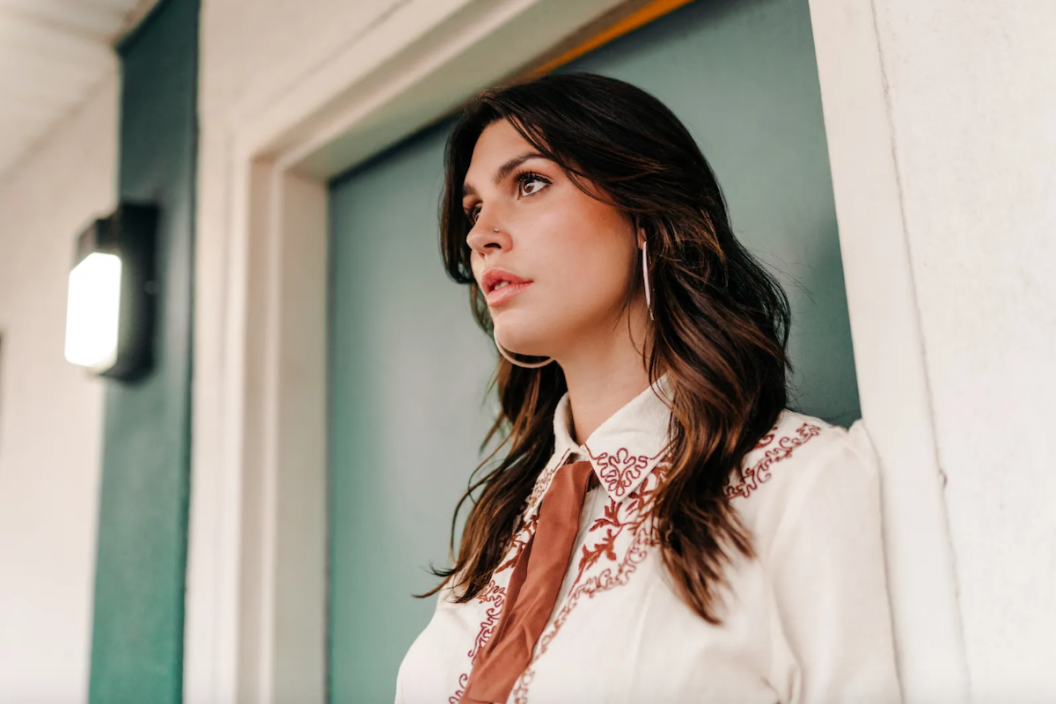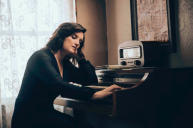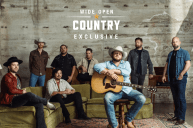One of the best debut EPs of 2022, Stefanie Joyce's Marlboro Reds & Motel Rooms should impress fans of story-driven yet radio-friendly material while upping Joyce's profile in alt-country circles. It's all intentional, with Joyce applying lessons learned as a mainstream Nashville songwriter to short stories that better reflect her interests in Southern literature and Biblical metaphors than anything she'd pen on Music Row.
Videos by Wide Open Country
"Even though the subject matter of that music is often pretty limited, for lack of a better term, there is such an emphasis on really well-structured writing and well-structured hooks and wordplay," Joyce told Wide Open Country about the Music Row system that often gets ridiculed by her peers. "I love the sound of Americana and I love the sound of more organic production and storytelling, but I find sometimes in that community there's not necessarily the same emphasis on being a wordsmith or being really technical in your lyrics. I feel like I've learned from the best of both worlds."
Though Joyce often cites Gillian Welch, John Prine and Turnpike Troubadours leader Evan Felker as influences, the lyrics of Marlboro Reds & Motel Rooms selections "Presidio," "Idle Hands," "Tulsa," "Love Thy Neighbor" and "Ticket to Atlanta" owe just as much to the small town world-building work of Brandy Clark, Ashley McBryde and Dennis Linde.
By following her singer-songwriter goals despite past insecurities about her vocal and guitar-strumming gifts, Joyce found the ideal medium for story-songs about characters overcome with Baptist —or Episcopalian, in her case— guilt as they wander helplessly through life's valleys.
"That's something I love about country music," she said. "For me, it's just an extension of the Southern canon of literature. But I feel like there is the language and the precedent that you can talk about things like faith and you can talk about things like forgiveness in a very everyday way. Whereas where I'm from in the Pacific Northwest, you can't have those conversations in public, much less in art."
Religious imagery paints easy-to-interpret pictures, whether the listener is atheist or plays in a praise band on Sundays. Sprinkle in some literary sense of mystery, and you've got lyrics that reflect broad, uncomfortable truths for Joyce's growing audience.
"They're all little snapshots of people who are stuck in some way or another," she said. "Maybe the end of 'Tulsa' is a little hopeful because you get the sense that the narrator has kind of quit the thing, but for the most part, there isn't a whole of redemption that happens at the end. I think it's a pretty static record from a narrative point of view in the sense that all these characters at the starts of these songs start off stuck and by the end of the song, they're even more stuck.
"I'm also against very moralistic music, and I, as someone who has struggled with a lot of the stuff I talk about on the record, I've never felt particularly comforted by someone telling me that I should look on the bright side or feel okay," she continued. "I think you can feel just as uplifted by a sad song as you can by an uplifting song, and I want to write stories for people that need them for where they're at when they were at a low place. I think for me, what I can offer is a sense of being seen and a sense of being heard. Then they can go find someone else to listen to once they are ready to start feeling better."
Joyce incorporates more in her recent and forthcoming music than mainstream and outsider country thanks to a backing band of proficient bluegrass pickers.
"I am in awe in the musicianship in bluegrass, and I feel like players who are trained in that medium are so much more able to come up with just really interesting musical ideas than like, no offense, 1-4-5 country guitar guys doing rock-county riffs," she explained.
In all, Joyce tells stories with deeper emotional nuance than those typically heard on country radio while utilizing a skillset honed within the Nashville machine.
"My style of writing does really draw on Music Row structure," she said. "I hope that you can hear that I've studied on Music Row. In the lyrics, I'm just tackling things that people in that world really don't want to talk about."




